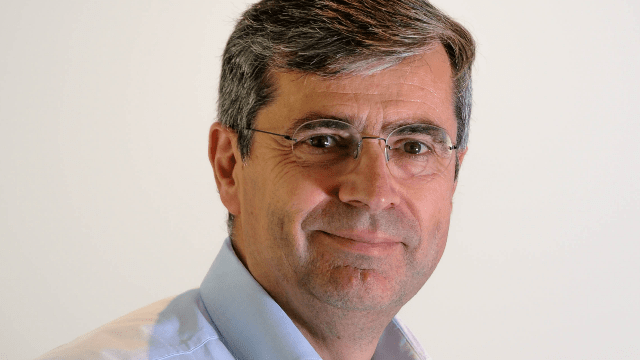Luc Callebat (E86): “My Priority is to Ensure the Safety of My 800 Co-Workers in Ukraine”
Luc Callebat (E86) is Senior Vice President of the building materials group CRH, which has more than 800 employees in Ukraine. He tells us how he is helping his teams affected by the war.
ESSEC Alumni: How has the war in Ukraine impacted your teams?
Luc Callebat: We have more than 800 co-workers who consider Ukraine as their home and who have always lived there. Most of them are based in the west of the country, but certain employees and their families located in Kiev or Odessa had to, or chose to, flee to less exposed areas in Ukraine or to neighbouring countries.
EA: What actions are you taking for your employees?
L. Callebat: My priority was to ensure the utmost safety of my co-workers. We set up the necessary teams and logistics to help our staff located in the areas near the fighting, such as Kiev or Odessa, to move with their loved ones to safer places, either within Ukraine or to the surrounding countries, where a month after the onset of the war, already more than 180 employees or members of their family now live. These displaced people continue to benefit from our support on several levels, including accommodation, schooling for their children, access to medical or psychological aid and material support. We are committed to standing by our colleagues, whether they are still in Ukraine or abroad, and regardless of how the situation evolves. I was deeply moved by the high degree of mobilisation of our teams in Poland, Romania and Slovakia, who enabled us to implement our response at very short notice.
EA: Are you leading wider-reaching actions for people affected by the war in Ukraine?
L. Callebat: CRH signed a partnership agreement with UNICEF to support the humanitarian aid programme in Ukraine, in particular via donations from our staff around the world. Concrete proposals for aid have also been pouring in from all countries, in the form of accommodation, job offers and all kinds of donations. I’ve been really impressed by the show of solidarity from across the world.
EA: What advice can you give those who would like to help people affected by the war in Ukraine?
L. Callebat: The situation is particularly difficult in Poland. The country has welcomed 2.5 million refugees so far, which is more than the population of its capital! As men aged between 18 and 60 cannot leave Ukraine, those crossing the border are women and their children, isolated women or children, or elderly people, many of whom have come from the combat areas, and often without any baggage. There is a vital need for accommodation, and local welcoming capacities are already saturated, despite a remarkable groundswell of solidarity with countless families opening their homes to refugees. The priority is to pursue this effort. In countries where the flow of refugees is not causing a logistical problem, the best approach is still to send financial aid to NGOs already engaged in Ukraine or neighbouring countries, who are doing an outstanding job.
If you would like to help fund the UNHCR’s action for Ukrainian war refugees, contribute to the collection co-organised by ESSEC and ESSEC Alumni and make a donation.
For more information on the UNHCR: Official site | Twitter | Facebook | Instagram

Comments0
Please log in to see or add a comment
Suggested Articles


